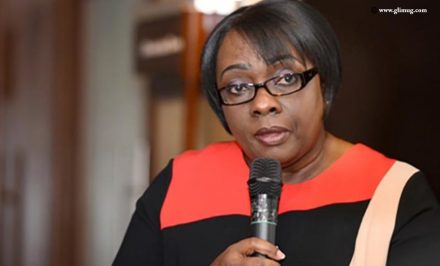 Muna Lobé, committed to the art of storytelling
Muna Lobé, committed to the art of storytelling
 Côte d’Ivoire: Patricia Claude Kalou, passion and commitment to audiovisual and cinéma
Côte d’Ivoire: Patricia Claude Kalou, passion and commitment to audiovisual and cinéma
 Felicia Nja-Njobaya Motia, the young leader championing regenerative agriculture in Cameroon
Felicia Nja-Njobaya Motia, the young leader championing regenerative agriculture in Cameroon
 Laure Beyala, the Franco-Cameroonian engineer promoting digital health
Laure Beyala, the Franco-Cameroonian engineer promoting digital health


Julia Sebutinde is a Ugandan lawyer. She is one of the few African women to have served in the International Court of Justice (ICJ). Last November, she was re-elected for a second term.
In Uganda, Julia Sebutinde has built a strong reputation by judging the country’s biggest corruption cases. She is also known for her active involvement in drafting legislation to end apartheid in Namibia.
Julia Sebutinde was trained at Makerere University where she got a Bachelor of laws in 1977 and a postgraduate diploma in legal practice in 1978. Then, she joined the Ugandan Ministry of Justice, where she drafted legislation for the Ugandan government and participated in the process of transforming bills into statutes.
In 1990, she flew to England. In 1991, she obtained a master’s degree from the University of Edinburgh and immediately worked as a consultant and advisor for the government of Namibia, which had just gained independence. For five years, she trained the newly independent country’s lawyers to draft the laws that would replace the apartheid laws in force in the country until then.
1996 marked a real turning point in her career. She was appointed to the High Court of Uganda. During her tenure, she dealt with the biggest cases of corruption and irregularities in the Ugandan police, the country’s armed forces and the tax administration. As a result of her work, the Ugandan government carried out numerous reforms to end corruption in state institutions.
In 2005, she became a judge at the Special Court for Sierra Leone. She dealt with intricate cases such as those related to war crimes, crimes against humanity…in the country.
In 2011, she was elected judge at the International Court of Justice (ICJ). She became one of the few African women to join the judicial body of the United Nations.
In recognition to her contribution to international justice, she received an honorary Doctorate of Laws from the University of Edinburgh in 2009. In 2001, she was awarded the Uganda Law Society Special Prize for her efforts in promoting justice in Uganda.